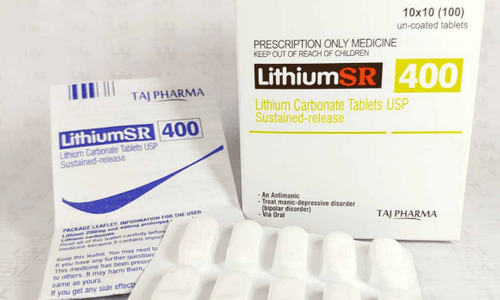This is an automatically translated article.
The sciatic nerve is located vertically from the lower back to the leg. When there is pressure, such as a disc or bone, you will experience pain, burning, numbness, or weakness in your sciatic nerve. It can feel like being pricked by a needle, being electrocuted, or being stabbed by a knife, depending on the individual. So what to do about sciatica pain?1. How to relieve sciatica?
1.1. Wait a while Trying to endure a little longer may not be a quick way to relieve sciatica, but it really works. Waiting a while is probably the best proven treatment. About 80-90% of people with sciatica go away on their own within a few weeks.1.2. How to Relieve Sciatica with Walking When you have sciatica, you can take time to rest and relax, but don't think too long.
Because too much bed rest can weaken your muscles. If you feel uninterested in your usual workout schedule, try to listen to your body's signals. Don't sit too much, as this will most likely make the pain worse.
1.3. Stay active If the pain isn't too severe, stretch, take short walks, and do any physical activity you feel comfortable doing. It is especially important to try to stretch your lower back, as this may be where the sciatic nerve is being compressed.
1.4. Hot and cold compresses Hot and cold are two opposing concepts, but both are useful sciatica relief that can help people with sciatica feel comfortable.
Cold therapy is often appropriate for recent injuries. After about 72 hours, doctors will recommend switching to heat. Use an ice pack wrapped in a towel or apply heat for 15-20 minutes at a time. Take care to avoid burning your skin.
1.5. Using sciatica pain relievers Taking over-the-counter (OTC) medications is one way to relieve sciatica. Nonsteroidal anti-inflammatory drugs (NSAIDs) such as ibuprofen and naproxen can help relieve pain as well as reduce inflammation. If not specifically directed by your doctor, simply take your OTC sciatica pain reliever according to the dosage on the label.

Ibuprofen và naproxen là các loại thuốc giảm đau thần kinh tọa
1.7. Try physical therapy Physical therapy can help you correct your posture or strengthen the muscles that support your lower back. Your physical therapist will design an exercise program, including stretching techniques, and can teach you how to do it at home.
1.8. Epidural injection If you've tried many ways to relieve sciatica and still don't feel better, your doctor may recommend an epidural injection. This is a steroid injection into the spine, especially for patients who have had pain for more than 6 months. However, studies have yet to agree on how effective this approach is. The patient can discuss more carefully with the doctor about the pros and cons before proceeding with the injection.
1.9. Acupuncture This ancient Chinese medical practice is beginning to be recognized by Western doctors as effective. Some studies have even shown acupuncture to be more effective than traditional back pain treatments. This sciatica relief has very few risks, but you need to find a highly skilled, reputable and licensed acupuncturist.
1.10. Take a Yoga class This may not be a complete sciatica relief, but it will help you feel better. Iyengar Yoga focuses on posture correction and is recommended for people with sciatica. Research shows that this type of exercise reduces pain and makes it easier to walk.
1.11. Massage A professional massage is not just for relaxation. Research shows that massage therapy reduces pain and improves flexibility with lower back movement. Massage also helps blood flow, promoting your body to heal itself. You should find a massage therapist who specializes in back pain and can also do some stretching during your therapy sessions.
1.12. Managing stress Your emotions can play a role in the formation of pain. Stress causes muscles to tense and makes the pain seem worse. Biofeedback shows how your thoughts and behaviors affect your breathing and heart rate.
This therapy can help you feel better. You can also try cognitive behavioral therapy with a mental health professional for guidance in changing your behavior and thinking.

Châm cứu cũng là cách làm giảm đau thần kinh tọa hiệu quả
2. When to see a doctor?
Usually the sciatic nerve is pinched, causing pain but not dangerous. But sometimes you need to see a doctor right away, especially if you have the following symptoms:Fever Blood in urine Difficult bowel or bladder control Pain so severe that it makes you wake up in the middle of the night . Most people with sciatica do not need surgery. But the doctor may recommend surgery if the patient:
Has difficulty walking Loss of bladder or bowel control The pain is getting worse and other treatments have not worked. The specific surgical procedure will depend on the cause of your symptoms. The most common method is to remove the part of the herniated disc that is pressing on the sciatic nerve.
Please dial HOTLINE for more information or register for an appointment HERE. Download MyVinmec app to make appointments faster and to manage your bookings easily.
Reference source: Webmd.com












